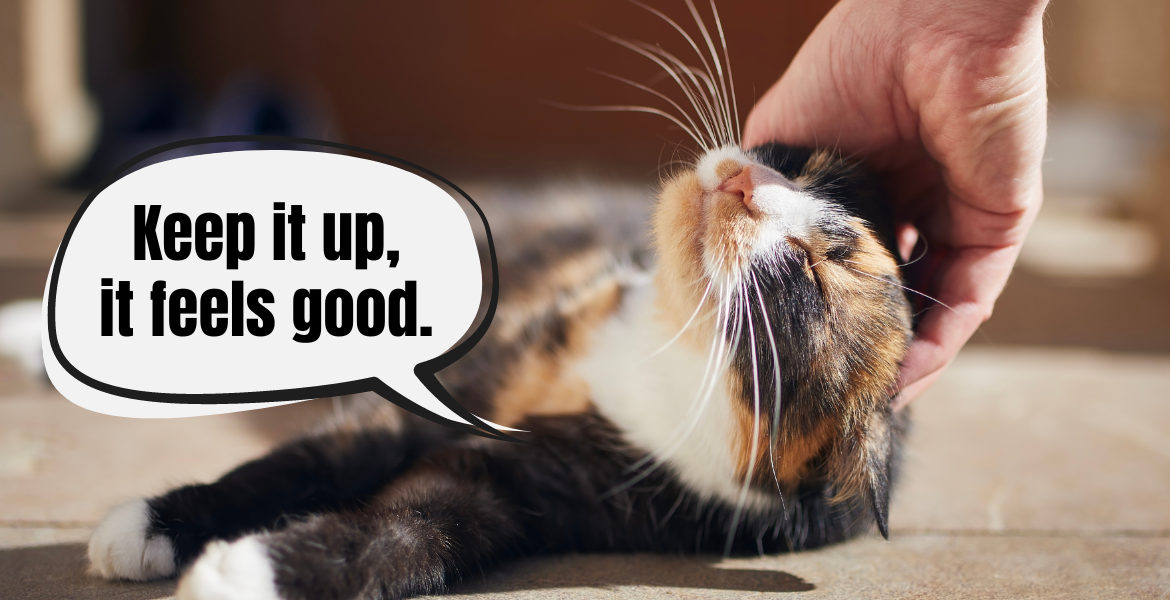Surely, fabCats, you have come across the theory that male cats are friendlier and more cuddly than female cats. This is a rather popular myth, and we have also heard opinions that the purring boys in our team are more inclined to jump on laps, snuggle, head-butt, and even share our bed because that’s just how boys are. But how much truth is there to this myth, and how much “evidence” is just anecdotal? Let’s find out
Male cat or female cat – when does a cat’s gender matter?
A cat’s personality is a topic that requires more thorough research and analysis by behaviorists and cat specialists. After all, cats are just as wonderful human companions as dogs and deserve us to understand their character and needs as best as possible. However, based on what we already know about cats, as well as the experiences of many cat caregivers and breeders, it is not the gender of the cat that has the greatest impact on their character and relationship with humans, but good, early socialization, environment, and our approach to the cat.
Of course, when choosing a cat companion from a breeder or a shelter, you have every right to prefer cats of a particular gender. It does affect, for instance, the size of the cat – girls are usually slightly smaller than boys. The personalities of male and female cats will also be slightly different, but as long as we are talking about neutered cats, gender really doesn’t make a big difference in the context of the cat’s relationship with their hoomans.
Neutering and cat behavior
When discussing the influence of a cat’s gender on behavior, we cannot overlook the topic of neutering. Every responsible caregiver who does not run a registered cat breeding knows that neutering both male and female cats is important. It is not only a way to control the population of free-living cats, but also a health prevention measure directly affecting cat behavior. Unneutered male cats defend and mark their territory much more intensely, which can make them more prone to fighting with other cats. Female cats in heat seem more affectionate, while they are simply marking their territory in search of a potential partner. For both, it is somewhat of a torment. When we are dealing with lap cats, there is no need for such intense emotions and hormones to control their lives. Neutering is not a method for solving behavioral problems, but if done appropriately early, it can reduce the risk of them occurring.
And what about the gender of the cat caregiver? Do cats have their preferences?
This is also an interesting topic because some cats actually seem to gravitate towards men or women in their environment. However, most often it is not a matter of gender itself, but the way the caregiver interacts with the cat and the conclusions the cat draws about them. Cats, regardless of gender, often choose one “main” caregiver whom they adore. They will be much more likely to cuddle with this person and may demand specific behaviors from them, such as play or treats. What do they base their choice on? The key is, of course, the first meetings and the way the caregiver interacts with the cat. Even in well-matched pairs, there will be a caregiver who more often feeds the cat, plays with them, and gives them a sense of security. Cats pay attention to even the smallest details that we may not notice, and based on these, they establish a hierarchy of household members in their minds. Gender has little to do with it. However, there is one exception: it is well known that scent is very important to cats, and sometimes it happens that the natural scent of one of the caregivers, whether a woman or a man, simply acts on the cat like a magnet. We can’t win against such a strong attraction, even if we jump around the cat like faithful servants
Your cat will be more cuddly when…
We already know that neither the cat’s nor the hooman’s gender has an impact on how much affection and sympathy our furballs will show us. However, there are factors we can influence that can make a cat more or less willing to sit on our laps whenever they have the chance.
- Choosing the right breed. Choosing a specific cat breed does not guarantee you will always, without exception, get a cat with specific personality traits. However, it is hard to deny that each breed has certain characteristics that distinguish it from others. And so, among the “cuddly” cat breeds, we can include Maine Coons, Ragdolls, or Siamese cats.
- Early socialization. There is no arguing with it. Cats that have been with people since they were little and have grown up in good conditions are much more likely to seek human companionship than those that had to survive outdoors or were harmed by humans in any way. And while we believe that every cat deserves a loving home, as a caregiver, you have the right to look for a cat with specific character traits.
- Time spent together. When a new, purring family member appears in your home, give them the attention they deserve. Cats are much more likely to befriend a human with whom they feel safe and can meet their needs. If you regularly play with the cat (with engagement, not just waving a fishing rod for a short while), spend time with them, provide the necessary resources (scratching posts, climbing places, etc.), and feed them, the cat will undoubtedly appreciate it and will seek support from you when they get bored, feel unwell, or simply need someone’s company.
- Respecting boundaries. Cats like to live by their own rules, and even a beloved human should not cross them. So, let the cat dictate the time and level of your closeness. Respect their boundaries and do not force petting, cuddling, stroking, or sitting on your lap when the cat wants to sleep or rest alone. This sounds like the opposite of closeness, but trust us – the cat will appreciate that you are not imposing.
Male or female cat – that is the question! Our answer is: whatever you prefer, fabCat 




